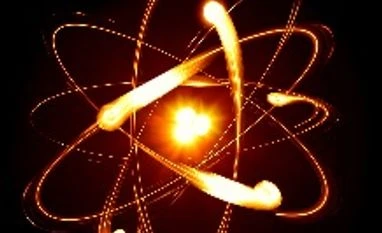A second top Republican Senator has voiced strong reservation over reports that the US may be pursuing a civil nuclear deal with Pakistan, citing the country's support to dreaded terror groups like the Taliban and the Haqqani network.
Senator John Cornyn, Senate Majority Whip for the 114th Congress, in a letter to Obama, has said "it is ill-advised" to pursue any civil nuclear agreement with Pakistan.
"I write to urge you to address Pakistan's well-known support for the Taliban and the Haqqani network, as well as to express my strong concerns regarding reports that you may be pursuing a civil nuclear agreement with Pakistan despite its deplorable record of nuclear proliferation," Cornyn said.
Pakistan and its intelligence service, the Inter-Services Intelligence (ISI), are reported to have a history of close links with the Taliban, the Haqqani network, and other extremist groups, he said.
Pakistan's support has enabled these groups to conduct attacks on US personnel, weaken Afghanistan's government, and undermine US interests there, Cornyn said.
The Taliban and the Haqqani network pose a threat to the stability of Afghanistan, due in part to Pakistan's backing, he said.
Cornyn said issues surrounding Pakistan's growing nuclear arsenal are of significant concern, and serious doubts persist regarding the security of its nuclear weapons.
It is well-documented that in recent decades Pakistan ran an illicit nuclear proliferation network that provided nuclear weapons technology to rogue regimes in Iran, North Korea, and Libya, he said.
"As a direct result of Pakistan's actions, our nation now faces long-term nuclear threats that did not previously exist. These problems are only compounded by Pakistan's ongoing development of additional types of nuclear weapons and the robust presence of Islamist militants in the country," the Texas Senator said.
"I recognise that managing the US' relationship with Pakistan is a complex task," he said, but there can be no compromise on preventing the further proliferation of nuclear weapons and related technology from Pakistan.
This is the second such letter coming from a top American lawmaker. On October 20, Congressman Ted Poe, Chairman of the Subcommittee on Terrorism, Non-proliferation and Trade, urged Obama to not engage in any negotiations regarding a US-Pakistan civil nuclear agreement.
"Pakistan has repeatedly proven itself to be deceptive and deceitful," he alleged.
"Simply put, Pakistan's current and past record is disqualifying for any consideration by the US to support civilian nuclear cooperation with Pakistan bilaterally or in any relevant multilateral forum," Poe has said.
Senator John Cornyn, Senate Majority Whip for the 114th Congress, in a letter to Obama, has said "it is ill-advised" to pursue any civil nuclear agreement with Pakistan.
"I write to urge you to address Pakistan's well-known support for the Taliban and the Haqqani network, as well as to express my strong concerns regarding reports that you may be pursuing a civil nuclear agreement with Pakistan despite its deplorable record of nuclear proliferation," Cornyn said.
Also Read
Cornyn is also the founder and co-Chair of Senate India Caucus -- the only country-specific caucus in the US Senate.
Pakistan and its intelligence service, the Inter-Services Intelligence (ISI), are reported to have a history of close links with the Taliban, the Haqqani network, and other extremist groups, he said.
Pakistan's support has enabled these groups to conduct attacks on US personnel, weaken Afghanistan's government, and undermine US interests there, Cornyn said.
The Taliban and the Haqqani network pose a threat to the stability of Afghanistan, due in part to Pakistan's backing, he said.
Cornyn said issues surrounding Pakistan's growing nuclear arsenal are of significant concern, and serious doubts persist regarding the security of its nuclear weapons.
It is well-documented that in recent decades Pakistan ran an illicit nuclear proliferation network that provided nuclear weapons technology to rogue regimes in Iran, North Korea, and Libya, he said.
"As a direct result of Pakistan's actions, our nation now faces long-term nuclear threats that did not previously exist. These problems are only compounded by Pakistan's ongoing development of additional types of nuclear weapons and the robust presence of Islamist militants in the country," the Texas Senator said.
"I recognise that managing the US' relationship with Pakistan is a complex task," he said, but there can be no compromise on preventing the further proliferation of nuclear weapons and related technology from Pakistan.
This is the second such letter coming from a top American lawmaker. On October 20, Congressman Ted Poe, Chairman of the Subcommittee on Terrorism, Non-proliferation and Trade, urged Obama to not engage in any negotiations regarding a US-Pakistan civil nuclear agreement.
"Pakistan has repeatedly proven itself to be deceptive and deceitful," he alleged.
"Simply put, Pakistan's current and past record is disqualifying for any consideration by the US to support civilian nuclear cooperation with Pakistan bilaterally or in any relevant multilateral forum," Poe has said.
)